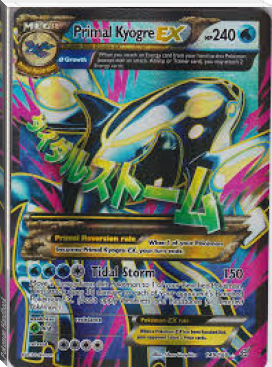LYSBETH by H. RIDER HAGGARD (best book club books for discussion txt) 📕

- Author: H. RIDER HAGGARD
Book online «LYSBETH by H. RIDER HAGGARD (best book club books for discussion txt) 📕». Author H. RIDER HAGGARD
Suddenly while this little company went homewards a sound arose in the quiet street as of people running. Instantly all three of them pressed themselves into the doorway of a house and crouched down. Martin lifted his ear and listened.
"Three people," he whispered; "a woman who flies and two men who follow."
At that moment a casement was thrown open forty paces or so away, and a hand, bearing a torch, thrust out of it. By its light they saw the pale face of a lady speeding towards them, and after her two Spanish soldiers.
"The Vrouw Andreas Jansen," whispered Martin again, "flying from two of the guard who burned her husband."
The torch was withdrawn and the casement shut with a snap. In those days quiet burghers could not afford to be mixed up in street troubles, especially if soldiers had to do with them. Once more the place was empty and quiet, except for the sound of running feet.
Opposite to the doorway the lady was overtaken. "Oh! let me go," she sobbed, "oh! let me go. Is it not enough that you have killed my husband? Why must I be hunted from my house thus?"
"Because you are so pretty, my dear," answered one of the brutes, "also you are rich. Catch hold of her, friend. Lord! how she kicks!"
Foy made a motion as though to start out of the doorway, but Martin pressed him back with the flat of his hand, without apparent effort, and yet so strongly that the young man could not move.
"My business, masters," he muttered; "you would make a noise," and they heard his breath come thick.
Now, moving with curious stealthiness for one of so great a bulk, Martin was out of the porch. By the summer starlight the watchers could see that, before they had caught sight of, or even heard, him, he gripped the two soldiers, small men, like most Spaniards, by the napes of their necks, one in either hand, and was grinding their faces together. This, indeed, was evident, for his great shoulders worked visibly and their breastplates clicked as they touched. But the men themselves made no sound at all. Then Martin seemed to catch them round the middle, and behold! in another second the pair of them had gone headlong into the canal, which ran down the centre of the street.
"My God! he has killed them," muttered Dirk.
"And a good job, too, father," said Foy, "only I wish that I had shared in it."
Martin's great form loomed in the doorway. "The Vrouw Jansen has fled away," he said, "and the street is quite quiet now, so I think that we had better be moving before any see us, my masters."
Some days later the bodies of these Spanish soldiers were found with their faces smashed flat. It was suggested in explanation of this plight, that they had got drunk and while fighting together had fallen from the bridge on to the stonework of a pier. This version of their end found a ready acceptance, as it consorted well with the reputations of the men. So there was no search or inquiry.
"I had to finish the dogs," Martin explained apologetically--"may the Lord Jesus forgive me--because I was afraid that they might know me again by my beard."
"Alas! alas!" groaned Dirk, "what times are these. Say nothing of this dreadful matter to your mother, son, or to Adrian either." But Foy nudged Martin in the ribs and muttered, "Well done, old fellow, well done!"
After this experience, which the reader must remember was nothing extraordinary in those dark and dreadful days when neither the lives of men nor the safety of women--especially Protestant men and women-- were things of much account, the three of them reached home without further incident, and quite unobserved. Arriving at the house, they entered it near the Watergate by a back door that led into the stableyard. It was opened by a woman whom they followed into a little room where a light burned. Here she turned and kissed two of them, Dirk first and then Foy.
"Thank God that I see you safe," she said. "Whenever you go to the Meeting-place I tremble until I hear your footsteps at the door."
"What's the use of that, mother?" said Foy. "Your fretting yourself won't make things better or worse."
"Ah! dear, how can I help it?" she replied softly; "we cannot all be young and cheerful, you know."
"True, wife, true," broke in Dirk, "though I wish we could; we should be lighter-hearted so," and he looked at her and sighed.
Lysbeth van Goorl could no longer boast the beauty which was hers when first we met her, but she was still a sweet and graceful woman, her figure remaining almost as slim as it had been in girlhood. The grey eyes also retained their depth and fire, only the face was worn, though more by care and the burden of memories than with years. The lot of the loving wife and mother was hard indeed when Philip the King ruled in Spain and Alva was his prophet in the Netherlands.
"Is it done?" she asked.
"Yes, wife, our brethren are now saints in Paradise, therefore rejoice."
"It is very wrong," she answered with a sob, "but I cannot. Oh!" she added with a sudden blaze of indignation, "if He is just and good, why does God suffer His servants to be killed thus?"
"Perhaps our grandchildren will be able to answer that question," replied Dirk.
"That poor Vrouw Jansen," broke in Lysbeth, "just married, and so young and pretty. I wonder what will become of her."
Dirk and Foy looked at each other, and Martin, who was hovering about near the door, slunk back guiltily into the passage as though /he/ had attempted to injure the Vrouw Jansen.
"To-morrow we will look to it, wife. And now let us eat, for we are faint with hunger."
Ten minutes later they were seated at their meal. The reader may remember the room; it was that wherein Montalvo, ex-count and captain, made the speech which charmed all hearers on the night when he had lost the race at the ice-carnival. The same chandelier hung above them, some portion of the same plate, even, repurchased by Dirk, was on the table, but how different were the company and the feast! Aunt Clara, the fatuous, was long dead, and with her many of the companions of that occasion, some naturally, some by the hand of the executioner, while others had fled the land. Pieter van de Werff still lived, however, and though regarded with suspicion by the authorities, was a man of weight and honour in the town, but to-night he was not present there. The food, too, if ample was plain, not on account of the poverty of the household, for Dirk had prospered in his worldly affairs, being hard-working and skilful, and the head of the brass foundry to which in those early days he was apprenticed, but because in such times people thought little of the refinements of eating. When life itself is so doubtful, its pleasures and amusements become of small importance. The ample waiting service of the maid Greta, who long ago had vanished none knew where, and her fellow domestics was now carried on by the man, Martin, and one old woman, since, as every menial might be a spy, even the richest employed few of them. In short all the lighter and more cheerful parts of life were in abeyance.
"Where is Adrian?" asked Dirk.
"I do not know," answered Lysbeth. "I thought that perhaps----"
"No," replied her husband hastily; "he did not accompany us; he rarely does."
"Brother Adrian likes to look underneath the spoon before he licks it," said Foy with his mouth full.
The remark was enigmatic, but his parents seemed to understand what Foy meant; at least it was followed by an uncomfortable and acquiescent silence. Just then Adrian came in, and as we have not seen him since, some four and twenty years ago, he made his entry into the world on the secret island in the Haarlemer Meer, here it may be as well to describe his appearance.
He was a handsome young man, but of quite a different stamp from his half-brother, Foy, being tall, slight, and very graceful in figure; advantages which he had inherited from his mother Lysbeth. In countenance, however, he differed from her so much that none would have guessed him to be her son. Indeed, Adrian's face was pure Spanish, there was nothing of a Netherlander about his dark beauty. Spanish were the eyes of velvet black, set rather close together, Spanish also the finely chiselled features and the thin, spreading nostrils, Spanish the cold, yet somewhat sensual mouth, more apt to sneer than smile; the straight, black hair, the clear, olive skin, and that indifferent, half-wearied mien which became its wearer well enough, but in a man of his years of Northern blood would have seemed unnatural or affected.
He took his seat without speaking, nor did the others speak to him till his stepfather Dirk said:
"You were not at the works to-day, Adrian, although we should have been glad of your help in founding the culverin."
"No, father"--he called him father--answered the young man in a measured and rather melodious voice. "You see we don't quite know who is going to pay for that piece. Or at any rate I don't quite know, as nobody seems to take me into confidence, and if it should chance to be the losing side, well, it might be enough to hang me."
Dirk flushed up, but made no answer, only Foy remarked:
"That's right, Adrian, look after your own skin."
"Just now I find it more interesting," went on Adrian loftily and disregardful of his brother, "to study those whom the cannon may shoot than to make the cannon which is to shoot them."
"Hope you won't be one of them," interrupted Foy again.
"Where have you been this evening, son?" asked Lysbeth hastily, fearing a quarrel.
"I have been mixing with the people, mother, at the scene on the market-place yonder."
"Not the martyrdom of our good friend, Jansen, surely?"
"Yes, mother, why not? It is terrible, it is a crime, no doubt, but the observer of life should study these things. There is nothing more fascinating to the philosopher than the play of human passions. The emotions of the brutal crowd, the stolid indifference of the guard, the grief of the sympathisers, the stoical endurance of the victims animated by religious exaltation----"
"And the beautiful logic of the philosopher, with his nose in the air, while he watches his friend and brother in the Faith being slowly burnt to death," broke out Foy with passion.
"Hush! hush!" said Dirk, striking his fist upon the table with a blow that caused the glasses to ring, "this is no subject for word- chopping. Adrian, you would have been better with us than down below at that butchery, even though you were less safe," he added, with meaning. "But I wish to run none into danger, and you are of an age to judge for yourself. I beg you, however, to spare us your light talk about scenes that we think dreadful, however interesting you may have found them."
Adrian shrugged his shoulders and called to Martin to bring him some more





Comments (0)